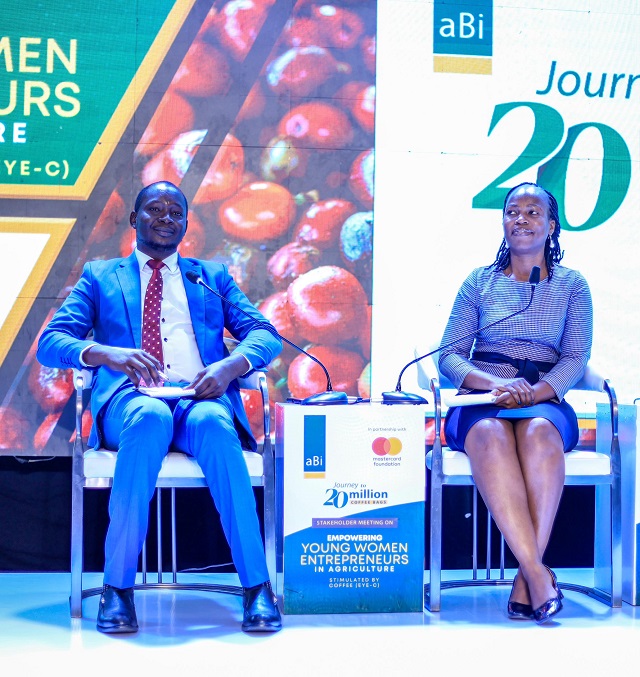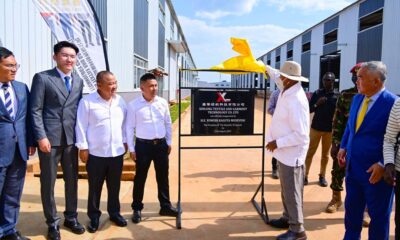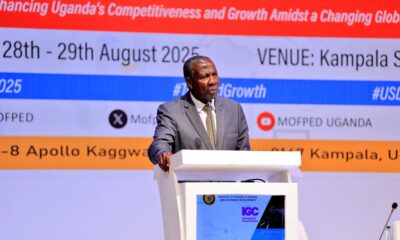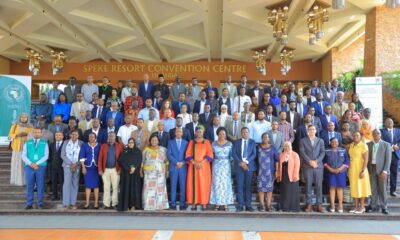Economy
aBi Development and Partners Pave Way for 300,000 New Jobs as Uganda’s Coffee Sector Empowers Young Women
A powerful alliance between aBi Development Ltd and the Mastercard Foundation is set to transform Uganda’s coffee sector, with an ambitious target of creating 300,000 dignified jobs for young women entrepreneurs. A high-level stakeholder engagement convened at the Kampala Serena Hotel on Tuesday galvanised support for this groundbreaking initiative, underscoring coffee’s pivotal role in national development and inclusive economic growth.
The gathering brought together a diverse group of stakeholders, including representatives from government, the private sector, producer organisations, development agencies, and financial institutions. The central objective was to forge a united strategy to promote inclusive economic participation for young women throughout the coffee value chain.
At the heart of these discussions was the “Empowering Young Women Entrepreneurs Stimulated by Coffee” (EYE-C) Programme. Funded by the Mastercard Foundation and implemented by aBi Development, EYE-C is poised to be a catalyst for inclusive agricultural and rural transformation, leveraging the nation’s burgeoning coffee industry.
Moses Nyabila, CEO of aBi Development, emphasised the strategic importance of the collaboration. “The primary purpose of this meeting was to bring together key stakeholders with the collective aim of helping Uganda attain 20 million coffee bags per annum by 2030, under the government’s Coffee Roadmap Vision 2030,” Nyabila stated. This ambitious goal comes on the heels of Uganda’s impressive 8.2 million bags sold last year.
He further highlighted the inclusive nature of the program, stating, “EYE-C is about empowering young women entrepreneurs, with men as allies; an inclusive journey we can’t achieve alone.” Nyabila revealed a significant commitment from the Mastercard Foundation, which is set to invest nearly $50 million into the EYE-C initiative, with an additional $20 million pledged for the next six years to support the program’s long-term objectives.
Caroline Wamono, Interim Program Director of EYE-C, articulated the program’s far-reaching potential. “We’re creating a rural transformation that is driven by coffee,” Wamono explained. “We aim to double farmer incomes, create over 300,000 jobs, empower women in coffee enterprise, and foster climate-smart agriculture.” She further urged stakeholders to bridge the critical gap in advisory services, noting that only 20 per cent of Ugandan farms currently receive such support, particularly for youth and women farmers.
Dr. Gerald Kyalo, Commissioner for Coffee Development at the Ministry of Agriculture, Animal Industry and Fisheries (MAAIF), affirmed EYE-C’s alignment with national priorities. He highlighted coffee’s central role in Uganda’s economy, contributing 22.6% of export earnings and supporting over 12 million Ugandans. “Our journey to 20 million bags by 2030 is not just a goal; it’s a national mission,” Dr. Kyalo declared, underscoring the significant growth in coffee production from 4.7 million bags in 2017 to 8.2 million today.
Martin Maraka, CEO of the Uganda Coffee Federation, echoed the call for greater youth and women’s involvement. He stressed that their participation is crucial for the industry’s future, asserting that “with the right support, training, and access to resources, young people and women can drive innovation, increase productivity, and ensure long-term sustainability in Uganda’s coffee value chain.”
The event also featured a dynamic panel Q&A session with MAAIF’s Alfred Okwir and EYE-C’s Caroline Wamono, which delved into critical challenges facing Uganda’s coffee sector. Discussions addressed issues such as affordable financing for smallholder farmers, land ownership complexities for women, and the urgent need for improved access to extension services and markets.
The day concluded with highly collaborative breakout sessions, where participants focused on developing practical strategies to enhance coffee production, effectively engage youth and women, promote climate-smart agricultural practices, and improve overall coordination across the entire coffee value chain. The overwhelming sentiment was one of shared commitment to an inclusive and prosperous future for Uganda’s coffee sector, driven by the empowerment of its young women.
Comments



























